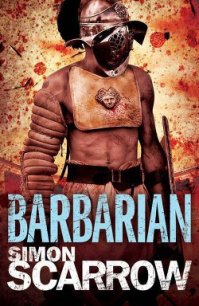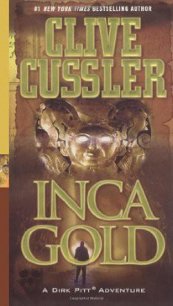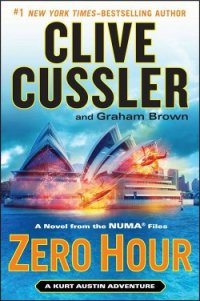Spartan Gold - Cussler Clive (полная версия книги .TXT) 📗
“I don’t understand.”
“I know you don’t.”
Bondaruk started walking away, calling to his dogs after him, then suddenly stopped and turned back to Arkhipov. “You’ve served me very well, Grigoriy, for many years.”
“It’s been my pleasure.”
“As I said, I don’t blame you for losing the Fargos, but I need your pledge that it won’t happen again.”
“You have it, Mr. Bondaruk.”
“You’ll swear to it?”
For the first time, Arkhipov’s eyes showed a trace of uncertainty. “Of course.”
Bondaruk smiled; there was none of it in his eyes. “Good. Raise your right hand and so swear.”
After only a moment’s hesitation, Arkhipov raised his hand to shoulder height. “I swear I will—”
Bondaruk’s shotgun spun in his hands and the barrel spat orange flame. Arkhipov’s right hand and wrist disappeared in a spray of blood. The former Spetsnaz stumbled backward one step, staring for a few moments at the gushing stump before letting out a moan and dropping to his knees.
Kholkov, standing a few feet behind and to the side, sidestepped, his eyes fixed on Bondaruk’s shotgun. Arkhipov clutched feebly at the stump, then looked up at Kholkov. “Why . . . ?” he croaked.
Bondaruk strolled up to Arkhipov’s side and looked down on him. “I don’t blame you, Grigoriy, but life is about cause and effect. Had you worked more quickly with Frobisher, the Fargos wouldn’t have had time to intervene.”
Bondaruk shifted the shotgun again, leveled it with Arkhipov’s left ankle, and pulled the trigger. The foot disappeared. Arkhipov screamed and toppled over. Bondaruk broke open the shotgun, loaded two more shells from his pocket, then methodically blasted off Arkhipov’s remaining hand and foot, then watched his subordinate writhing on the ground. After thirty seconds Arkhipov went still.
Bondaruk looked up at Kholkov. “Do you want his job?”
“Pardon me?”
“I’m offering you a promotion. Do you accept?”
Kholkov took a deep breath. “I have to admit your management style gives me pause.”
At this Bondaruk smiled. “Arkhipov isn’t dead because he made a mistake, Vladimir. He’s dead because he made a mistake that couldn’t be fixed. The Fargos are involved now, and it is a complication we can’t afford. You’re allowed mistakes—just not irreversible ones. I’ll need your answer now.”
Kholkov nodded. “I accept.”
“Wonderful! Let’s have some breakfast.”
Bondaruk turned and started walking away, his dogs trailing behind him, then he stopped and turned back.
“By the way, when we get back to the house you might want to check the American news sites. I heard a local man, a Maryland State Police officer, in fact, stumbled across a half-sunken German midget submarine.”
“Is that so.”
“Interesting, isn’t it?”
CHAPTER 12
LA JOLLA
You can’t be serious,” Sam said to Selma. “Napoleon’s Lost Cellar isn’t . . . It’s just a—”
“Legend,” Remi finished.
“Right.”
“Maybe not,” Selma replied. “First, let’s talk a little history so we’ve got some context. I know you’re both generally familiar with Napoleonic history, but bear with me. I won’t bore you with his entire personal history, so we’ll pick it up with his first command assignment.
“A Corsican by birth, Napoleon won his first acclaim at the siege of Toulon in 1793 and was appointed the rank of brigadier general, then General of the Army of the West, Commander of the Army of the Interior, then Commander of the French army in Italy. For the next few years he fights a series of battles in Austria, then returns to Paris a national hero. After spending a few years in the Middle East on his Egyptian Campaign—which was at best a marginal success—he returns to France and takes part in a coup d’etat that ends up with him as the First Consul of the new French government.
“A year later he takes an army across the Pennine Alps to wage the Second Italian Campaign—”
Remi said, “The famous painting of him on the horse . . .”
“Right,” replied Selma. “Sitting atop a rearing horse, chin set, arm pointed into the distance . . . The truth is a little different, though. First of all, most people think that horse’s name was Marengo, but it was actually known at that time as Styrie; its name was changed after the Battle of Marengo a few months later. And here’s the kicker: Napoleon actually did most of the crossing atop a mule.”
“Not quite befitting his image.”
“No. Anyway, after the campaign, Napoleon returns to Paris and is appointed First Consul for life—essentially open-ended benevolent dictatorship. Two years after that he proclaims himself Emperor.
“For the next decade or so he wages battles and signs treaties and so on until 1812, when he makes the mistake of invading Russia. It doesn’t work out quite as he plans, and he’s forced to conduct a winter withdrawal that all but decimates his Grand Army. He returns to Paris and over the next two years finds himself fighting Prussia and Spain, not only abroad, but on French soil as well. Soon after that, Paris falls. The Senate declares Napoleon’s empire dead and in the spring of 1814 he abdicates his rule to Louis XVIII of the Bourbon line. A month later, Napoleon is exiled to Elba and his wife and son flee to Vienna—”
“Not Josephine, right?” Sam asked.
“Right. Pulling a page from Henry VIII’s book, Napoleon divorced her in 1809 because she failed to give him a male heir. He married the daughter of the Emperor of Austria, Marie Louise, who managed to produce a son.”
“Okay, go on.”
“About a year after he was exiled Napoleon escapes, returns to France, and puts together an army. Louis XVIII flees the throne and Napoleon takes over again. This was the start of what historians call the Hundred Days Campaign—though it didn’t even last that long. Not quite three months later, in June, Napoleon is routed by the British and Prussians at the Battle of Waterloo. Napoleon abdicates again and is exiled by the British to Saint Helena—a chunk of rock about twice the size of Washington, D.C., dead center in the Atlantic Ocean between West Africa and Brazil. He spends the remaining six years of his life there and dies in 1821.”
“Of stomach cancer,” Sam offered.
“That’s the generally accepted theory, but there are a lot of historians who believe he was murdered—arsenic poisoning.
“So,” Selma concluded, “that brings us back to the Lost Cellar: The myth dates back to 1852 and the alleged deathbed confession of a smuggler named Lionel Arienne, who claimed that in June of 1820, eleven months before Napoleon died, he was approached by an agent of Napoleon’s at a tavern in Le Havre. The soldier—who Arienne simply referred to as ‘the Major’—hired Arienne and his ship, the Faucon, to take him to Saint Helena, where they were to pick up cargo, then deliver it to a destination to be named after they left the island.
“According to Arienne, when they reached Saint Helena six weeks later they were met in a small cove by a lone man in a rowboat, who carried aboard a wooden case, roughly two feet long and a foot wide. With his back facing Arienne, the Major opened the case, inspected its contents, resealed it, then suddenly drew his sword and killed the man from the rowboat. The body was weighted with a length of anchor chain, then dumped overboard. The rowboat was scuttled.
“It was at this point in Arienne’s telling of the story that the old smuggler was said to have simply died—in midsentence, no less—taking with him any clue as to the contents of the case or where he and the Major took it. And that might have been the end of it,” Selma said, “if not for Lacanau.”
“The name of Napoleon’s private vineyard,” Sam offered.
“Correct. While Arienne and the phantom Major were supposedly on their way to Helena, the vineyard at Lacanau—which the French government had generously allowed to remain as part of Napoleon’s estate—was burned to the ground by person or persons unknown. The vines, the winery, all the casks—utterly destroyed. Even the soil was obliterated, dosed with salt and lye.”




